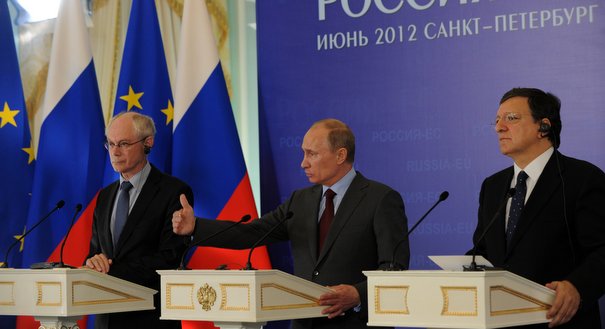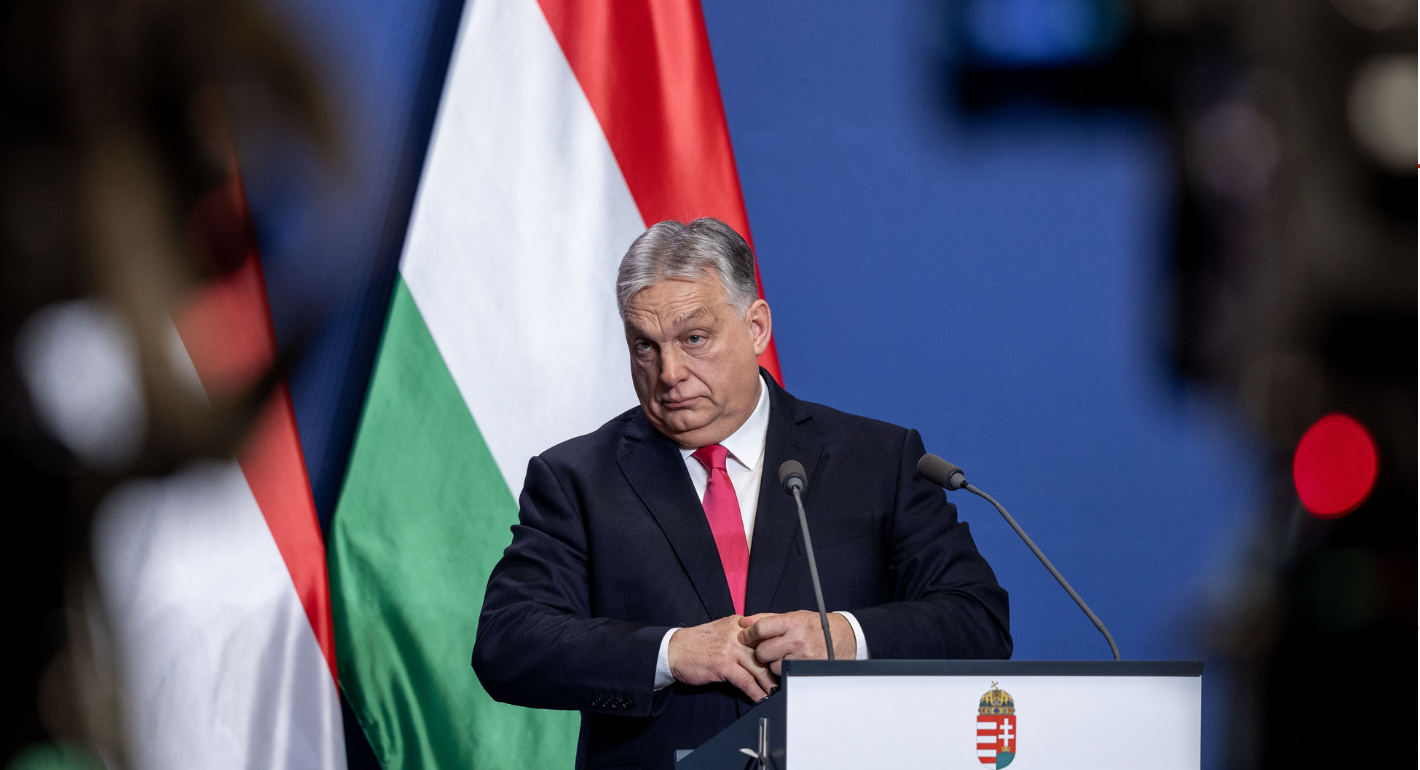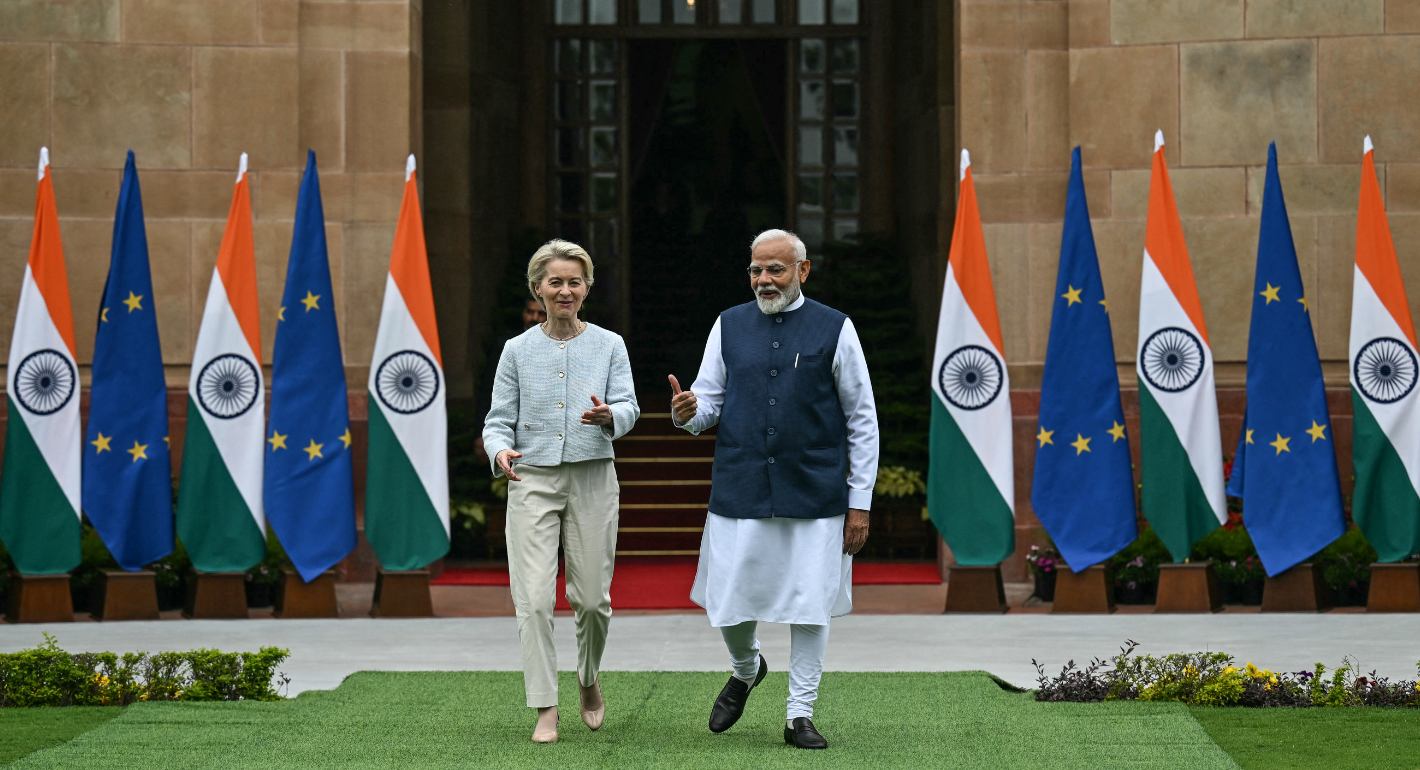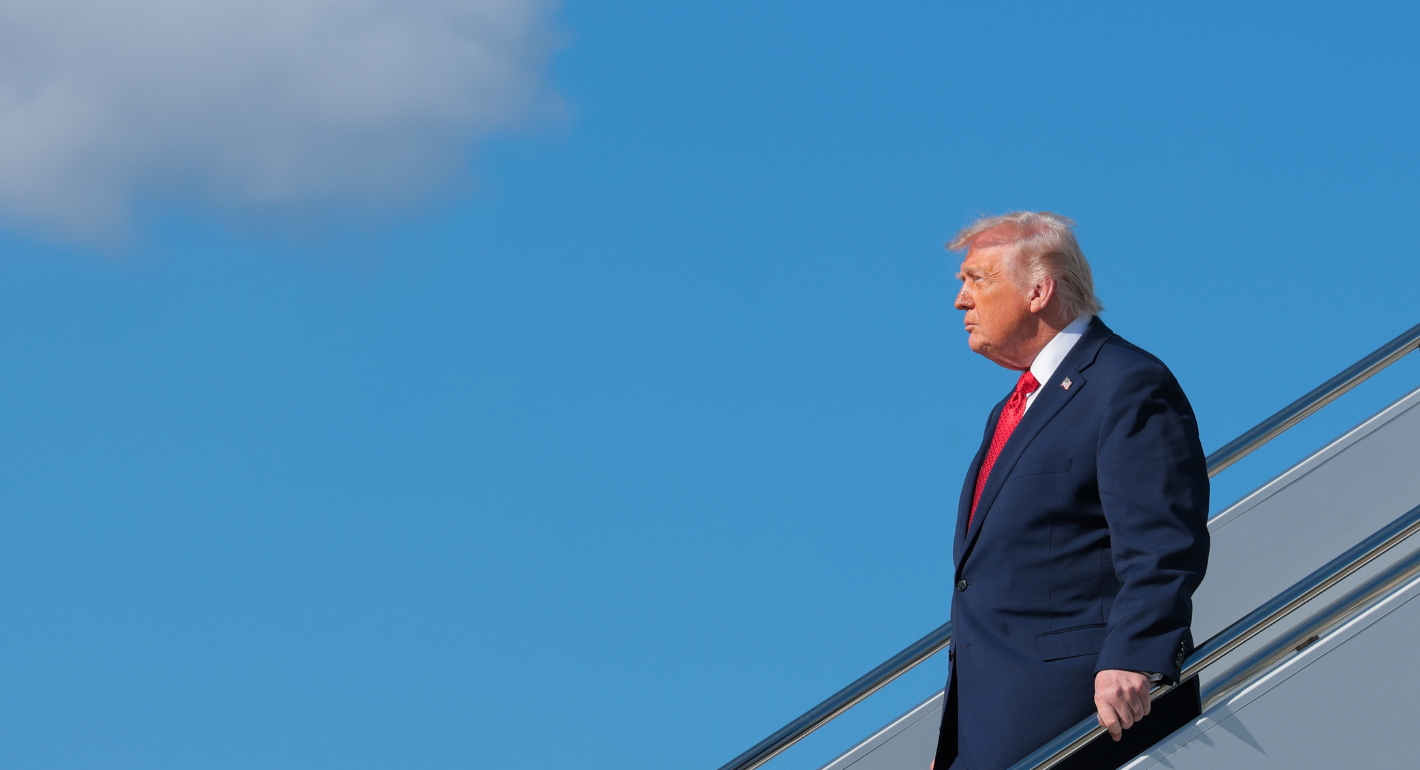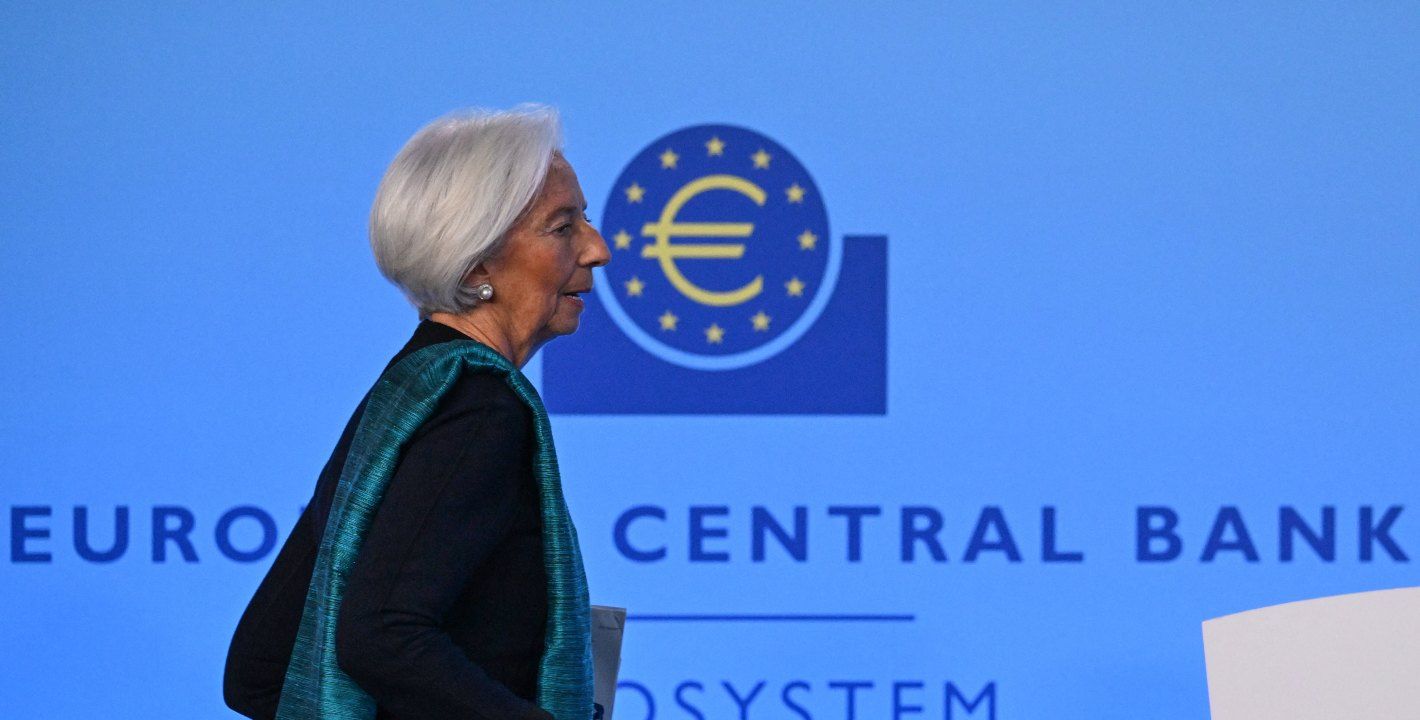After years of voicing criticism and other forms of displeasure, the European Union has become serious with Gazprom, launching an investigation into the company’s operations in Central Europe this fall. Although dismissed by President Putin as an attempt to make Russia pay to keep crisis-stricken Central European countries afloat, the EU’s step—taken against the background of the shale gas revolution in the United States—represents a material worsening of Gazprom’s position in Europe and an overall weakening of the material foundation of Russia’s foreign policy. To add insult to injury, one, or several parliaments in the EU might adopt their own version of America’s Magnitsky Act.
The toughening of Europe’s stance toward Russia has had much to do with its disillusionment with the results of the Medvedev presidency, and particularly with Putin’s formal return to the Kremlin. In mid-2011, Angela Merkel had publicly endorsed “candidate” Medvedev, who only a few months later had to succumb to Putin’s will.
This disillusionment was further exacerbated by the domestic developments in Russia. First by the mass demonstrations in Moscow and other cities against the flawed elections, then by the Russian government’s reaction to the opposition in the form of restrictive and punitive legislation, and finally by the trial and imprisonment of the members of the Pussy Riot punk group. The Russian Orthodox patriarch’s historic reconciliatory visit to Poland, which happened at the same time as the trial, received minimal publicity in Europe.
Even as Europe was turning away from “Putin’s Russia”, the Kremlin was going through a more fundamental reassessment of its approach to Europe. True, Putin’s plan of a Eurasian Union by 2015 still talks of a “Greater Europe”, a loosely structured common economic space to be made up of the EU and the Eurasian trio of Belarus, Kazakhstan, and Russia. Equally true, the Russian government is as active as ever in its insistence that visas be abolished between EU countries and Russia. Moscow is also sincere in its wish that Europe emerge from its current financial and economic predicament, and that confidence in the euro be fully restored soon.
Yet, seen from Moscow, the European Union has lost much of its luster. It is not necessarily seen as a trend-setter. This is not only about the common currency: Putin has already said the future Eurasian Union will not adopt one. This is even more about the European socio-economic model, which is regarded by many in the Russian establishment as too socialistic and increasingly lacking in competitiveness. Most tellingly, Russian officials are no longer pretending to have any allegiance to Europe’s modern values, including tolerance and multiculturalism, which they now see as abject failures. Rather, they profess adherence to traditional values regarding the family, national identity, and state sovereignty.
Moscow has also discovered, somewhat to its surprise, that Europe’s two main military powers, France and Britain, have again turned interventionist, specifically regarding the situation in the Middle East and North Africa. This was evidenced, in particular, by the 2011 NATO operation in Libya and France’s recent recognition of Syria’s opposition as the legitimate authority in that country. This has led to new divisions at the UN Security Council, where Moscow and Beijing now routinely face off with Washington, London, and Paris.
All of this has produced a situation in which Europe sees Russia primarily as a gas supplier whose share in the EU market needs to be trimmed, and whose practices in that market have to be improved. The idea of the EU and Russia “sharing everything but the institutions,” which was crafted by Romano Prodi in the early 2000s looks bizarre today. Some pro-active Europeans are talking about the need to raise the issue of values with Russia, and to apply pressure on the Kremlin where it hurts the most by substantially cutting its gas revenues, issuing visa denials to its officials, and opening criminal investigations against some of them.
The Kremlin, for its part, sees the EU mainly as a source of foreign exchange, and a provider of technology and investment. Russia has quietly revised the “European choice” that Putin proclaimed a decade ago, and it now vows to respond in kind to any measure that the Kremlin would find hostile. The Council of Europe, alongside the Organization for Security and Cooperation in Europe (OSCE), are seen as weak and ineffectual, but increasingly intrusive, talking shops. A recent refusal by Texas’ Attorney General to allow OSCE election monitors anywhere near polling stations in the U.S. state, which was meekly accepted by the OSCE, was hailed by Russian state-owned media as the right approach for a self-respecting nation.
In fact, neither Russia nor the EU focuses much on the other. The Europeans, of course, are overwhelmed by the difficult and potentially dangerous crisis they are trying to manage and eventually to overcome. The Russians are, for the time being, prioritizing Eurasian integration, while also trying to woo some EU-leaning countries in Eastern Europe, such as Ukraine, to join the Moscow-led project. Moreover, Russia is “pivoting” even farther to the east, to the Asia-Pacific, where Moscow seeks partners to help develop Russia’s Siberian and Far Eastern provinces. Unlike the Europeans, those partners are unlikely to talk in terms of values, only interests.
This may appear as an impasse, but it is not the end of the road for the EU and Russia. Irrespective of each other, both partners are changing profoundly, and both have to deal with the issue of their continuing decline vis-à-vis other global players. At some later stage, Russia may indeed discover that—even if the Eurasian Union is a qualified success and the opening to the Pacific brings in useful resources—it will still need close integration with the EU if it wants to modernize in earnest. And the EU might conclude that it may need Russia’s resources and its strategic depth if it wants to play more of a global role. Should Russia and the European Union decide, by contrast, to go separate ways, both will lose.

